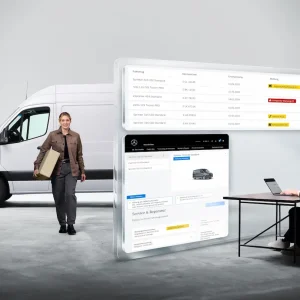The Freight Transport Association has warned that plans by the London mayor Sadiq Khan to bring forward the launch of the Ultra-Low Emission Zone by a year to 2019 and to expand the area covered could force small businesses operating vans to the wall.
The ULEZ originally had a planned start date of September 2020, but Khan has been vocal in the need to bring forward the roll-out and expand the area covered by the anti-pollution zone.
But the FTA claimed an earlier introduction of the ULEZ could “lock some small businesses out of the London market altogether”.
Christopher Snelling, the FTA’s head of national and regional policy, said: ““We stated before that the central ULEZ starting in 2019 and expanding in 2020 would cause significant issues – especially in the van sector where there will only be two and a half to three years’ worth of compliant vehicles in the fleet. Typically, operators who rely on second-hand vehicles buy at four years old so it will place significant cost burdens on them,” said Christopher Snelling, the FTA’s head of national and regional policy.
According to Snelling, the new regulations could cost businesses with five vans £100,000 – 150% their typical turnover – in order to comply.
In the mayor’s second air quality consultation, Londoners will be able to have their say on the start date of the expanded ULEZ, covering the North and South Circular roads, which could be brought in line with the launch of the central ULEZ in 2019 that matches the current Congestion Charge Zone.
However, there have been calls for the ULEZ to be extended as far as Heathrow airport.
Khan has also started a formal consultation to introduce his ‘T-Charge’ – a £10 daily surcharge for cars and vans that do not meet the Euro4 emission standard – in October 2017.
Meanwhile, The Department for Environment, Food and Rural Affairs has launched a consultation on how to introduce Clean Air Zones in five cities in order to improve air quality.
Birmingham, Derby, Leeds, Nottingham and Southampton will be required to have these zones by 2020 in order to help hit Government air quality targets, but other local authorities will be able to introduce zones should they wish to.
According to the consultation documents Birmingham and Leeds are planning to discourage the use of diesel vans.
Snelling reiterated his concern that the proposals could “significantly disadvantage small businesses that use vans”.
“We all understand the need to continue to reduce the impact on human health of emissions, but as the proposals stand there is a real chance many small businesses will be disproportionately affected and locked out of their current work,” he said.
“The key issue for us is the timescale for implementation. If this is done in 2019 there would not yet be a sufficient market in compliant second hand vans for small businesses to be able to compete.”





